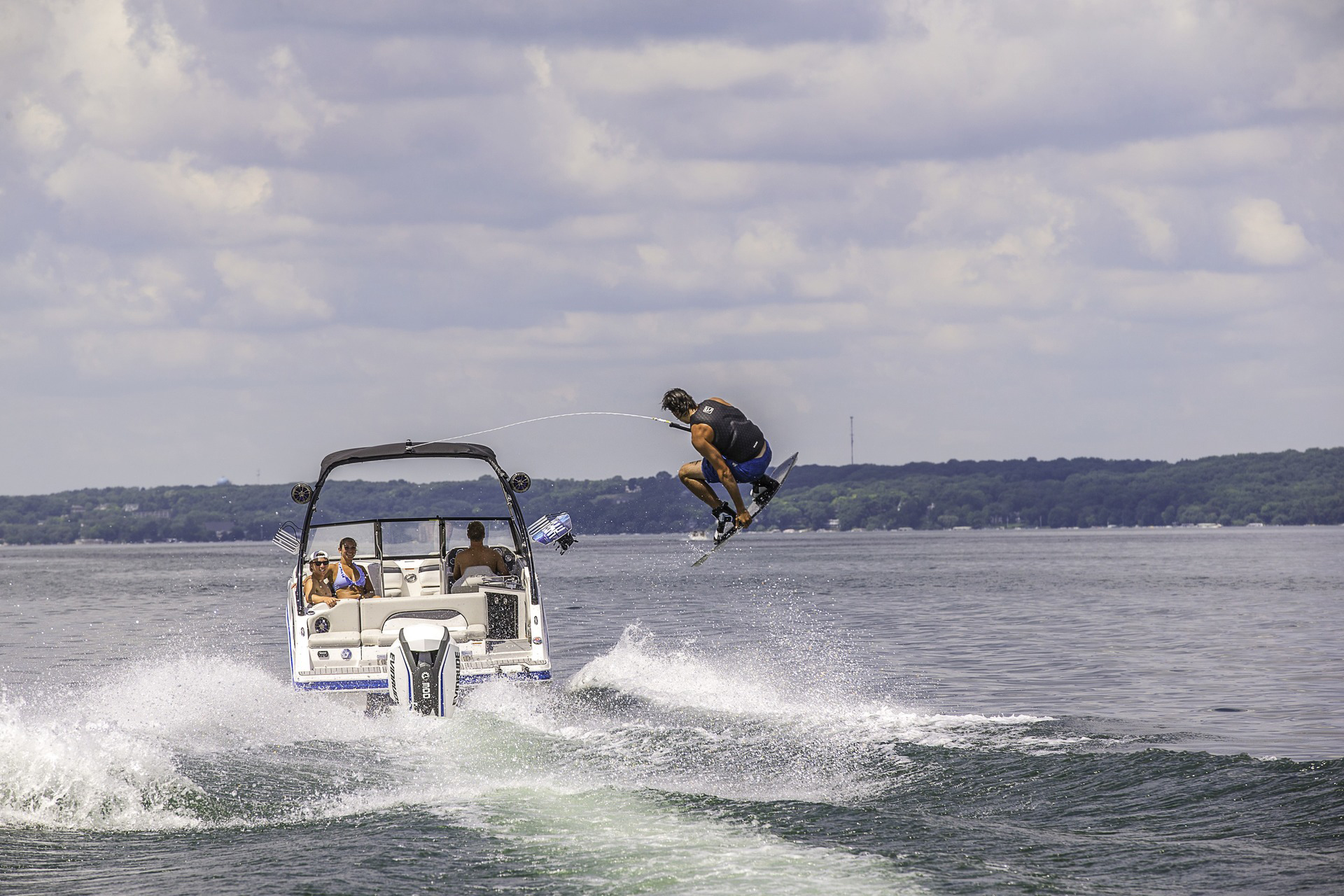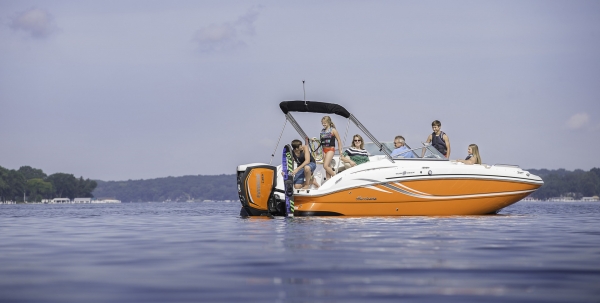This one is definitely a no brainer, but make sure you are following your states boating laws and as well as the rules and regulations for the particular waterway you are using. One of the best places to make sure you are up to date with these rules is by visiting your states Department of Natural Resources website. There you will have access to all of the boating rules and regulations, as well as other important topics such as operator age restrictions, life jacket rules, and registration. Most states also print small handbooks with all of this information in it. The handbooks can usually be found at places like bait shops, sporting good stores, or your local DNR office.
 Boating on any recreational waterway requires knowing whats under the water that you cant see as much as what you can see above water. Every lake or river has its unseen hazards weather it is a shallow stretch in some narrows, submerged tree stumps, or rocks. These all can do damage and put you in a dangerous position. So knowing these obstacles and where they are located will ensure the safety of those in the boat and those being towed. When you are on a new body of water you should take a few slower passes were you plan on boating. Only start towing people when you know your line is safe of unseen hazards.
Boating on any recreational waterway requires knowing whats under the water that you cant see as much as what you can see above water. Every lake or river has its unseen hazards weather it is a shallow stretch in some narrows, submerged tree stumps, or rocks. These all can do damage and put you in a dangerous position. So knowing these obstacles and where they are located will ensure the safety of those in the boat and those being towed. When you are on a new body of water you should take a few slower passes were you plan on boating. Only start towing people when you know your line is safe of unseen hazards.
Knowing how to communicate with each other is huge. The person driving the boat may not be able to verbally communication with the person being towed when in route, so hand signals are the next best option. Establishing a few different hand signals ahead of time will let the driver know how the person being pulled is doing. Such as to increase or decrease speed, or when the session is over.
Lastly, wear a life jacket. And not just one of those competition vests either. Yes they do offer some floatation as well as additional padding for impact, but they are not USCG approved. They are designed for controlled environments were if someone is seriously hurt, medical staff and other staff can come to their rescue in a quick fashion. That may not be the case when out on the lake with friends. The short time it takes for them to loop back around may be too long. So make sure you have a USCG approved life jacket that will keep you afloat. Its not worth struggling to stay afloat or even possibly drowning after a gnarly spill.


